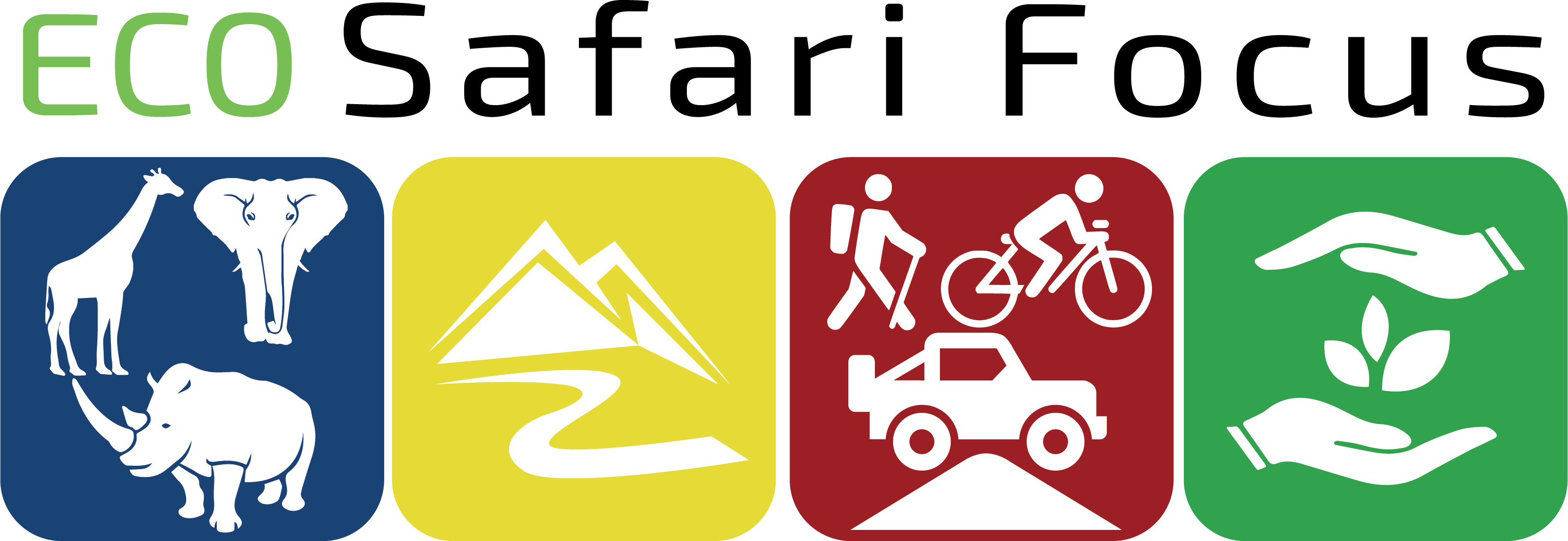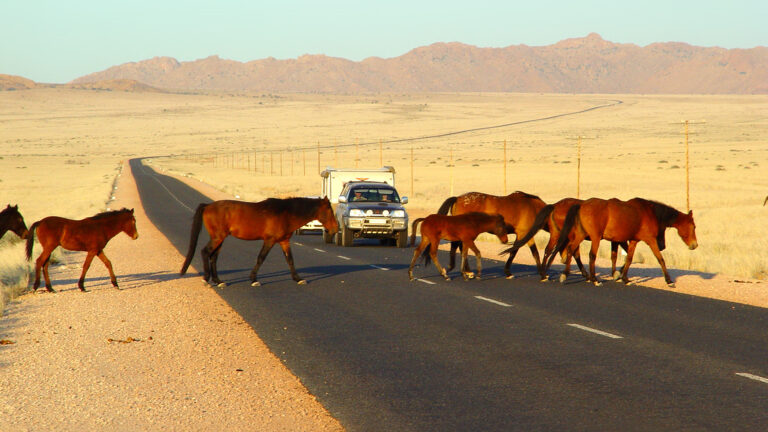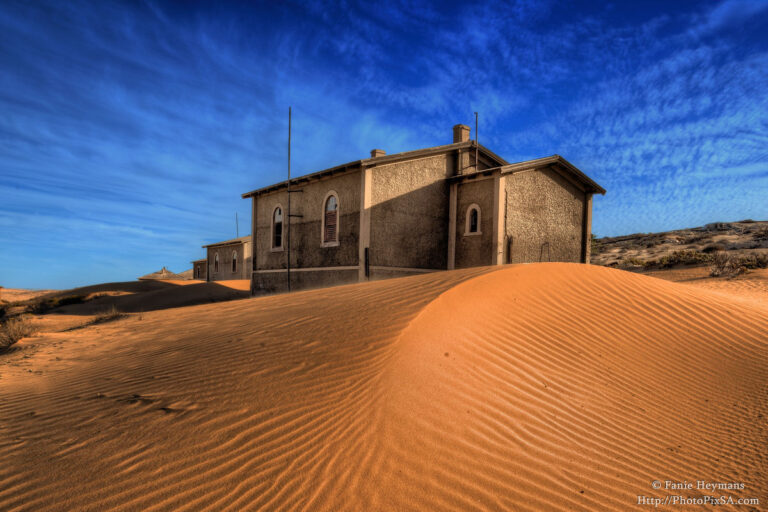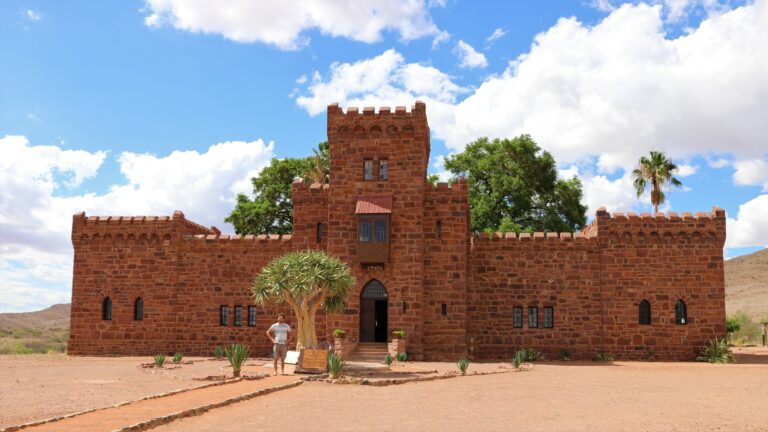
Duwisib Castle
3 ToursHistory Duwisib was built by ‘Baron’ Captain Hans Heinrich von Wolf (born in Dresden, September 11, 1873), a Saxon artillery officer following in the footsteps of his father Ernst (an officer in the Royal Saxon Army) who served in Königsbrück and was posted to (then) German South-West Africa in the Schutztruppe. After the German-Nama war
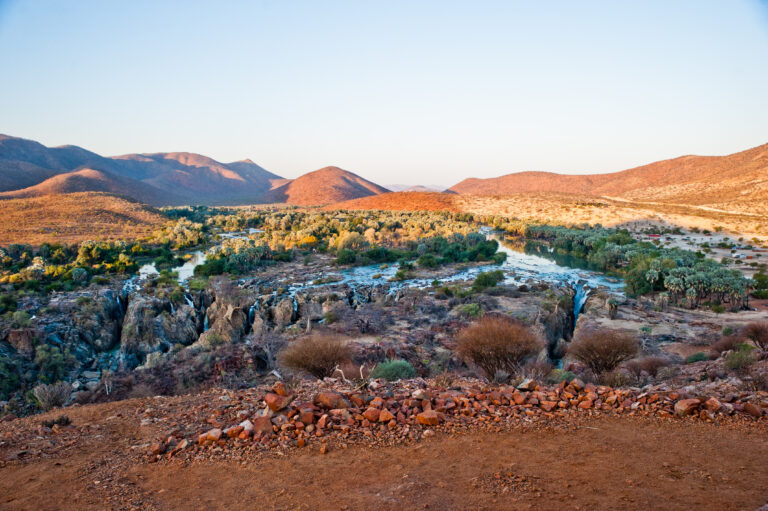
Epupa Falls
3 ToursAbout Epupa Falls (also known as Monte Negro Falls in Angola) is a series of large waterfalls created by the Cunene River on the border of Angola and Namibia, in the Kaokoland area of the Kunene Region. The river is about 0.5 kilometres wide in this area and drops in a series of waterfalls across
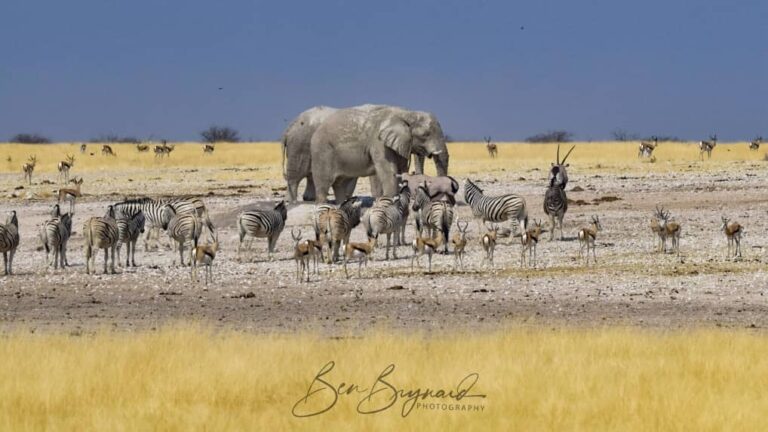
Etosha
3 ToursAbout Etosha National Park is a national park in northwestern Namibia. It was proclaimed a game reserve in March 1907 in Ordinance 88 by the Governor of German South West Africa, Dr. Friedrich von Lindequist. It was designated as Wildschutzgebiet in 1958, and was elevated to the status of a national park in 1967 by
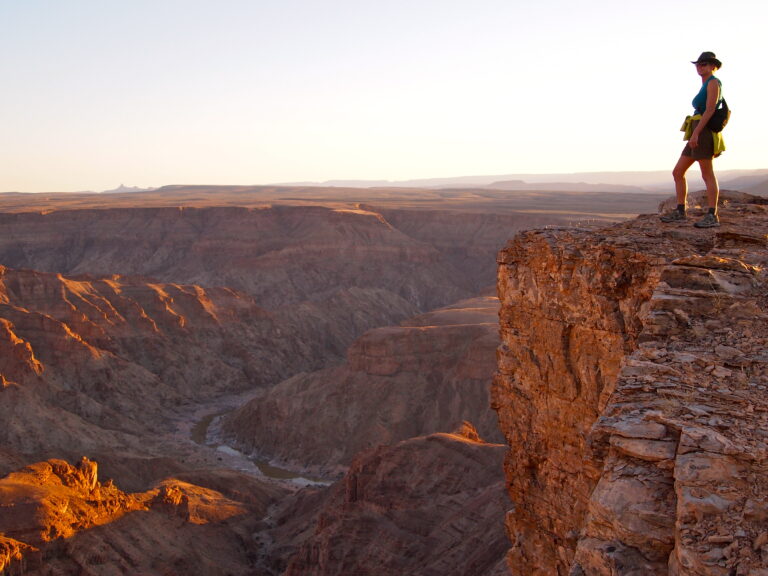
Fish River Canyon
3 ToursGeography and climate The Fish River Canyon, is located in the south of Namibia. It is the largest canyon in Africa, as well as the second most visited tourist attraction in Namibia. It features a gigantic ravine, in total about 100 miles long, up to 27 km wide and in places almost 550 meters deep.
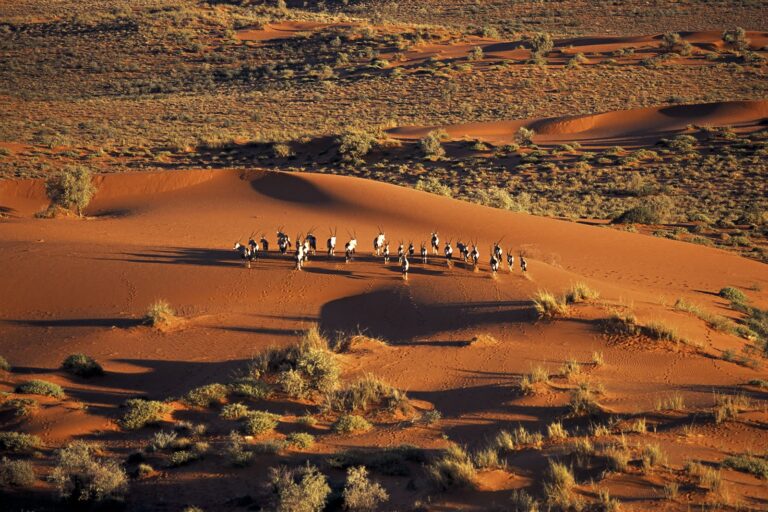
Kalahari
3 ToursThe Kalahari Desert The Kalahari derives its name from the Tswana term, Keir, which means, “the great thirst”, or Karagare, a tribal word meaning “a waterless place”. Geography and climate The Kalahari Desert cuts across Botswana, Namibia and South Africa, its sand dunes form the largest continues mass of sand in the world. The
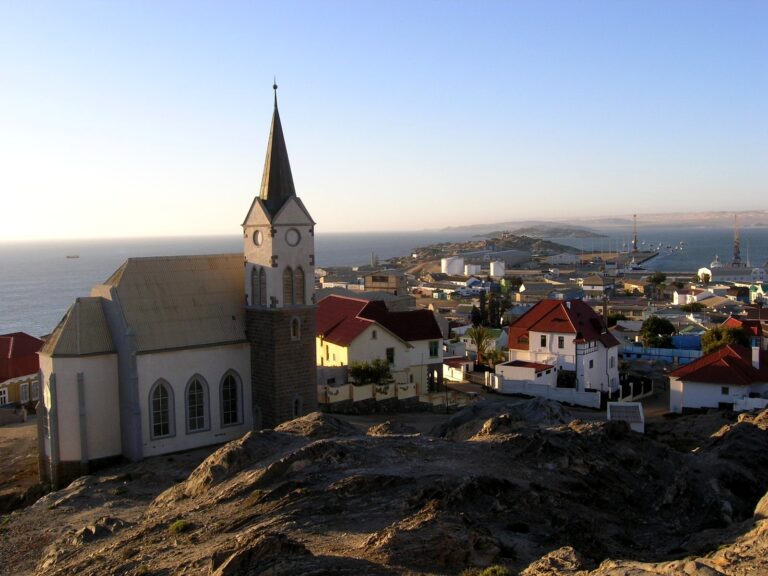
Lüderitz
3 ToursAbout Lüderitz is a coastal town in southwestern Namibia. It’s known for its German colonial buildings, including the art nouveau Goerke Haus, built into the rock face on Diamond Hill. Nearby, Felsenkirche is a hilltop church with panoramic bay views stretching around to Robert Harbor. The Lüderitz Museum has displays about the town’s diamond-mining past
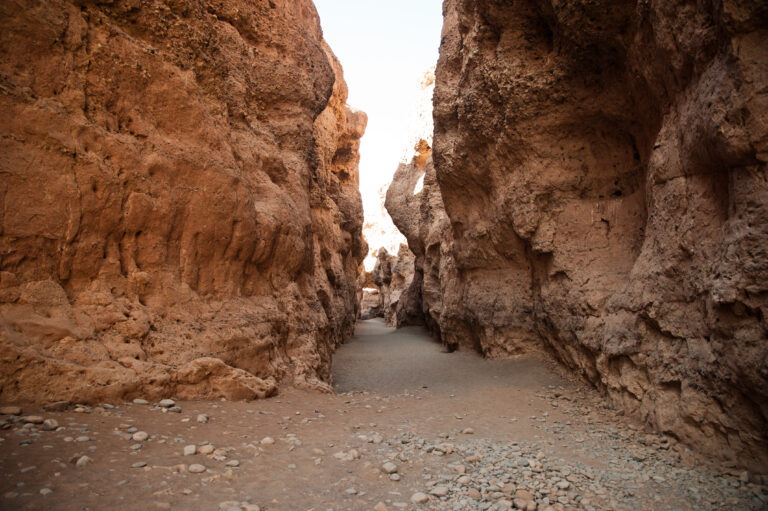
Sesriem Canyon
3 ToursAbout Sesriem Canyon is about 4 km from Sesriem itself, it is the second most important tourist attraction in the area after Sossusvlei. It is a natural canyon carved by the Tsauchab river in the local sedimentary rock, about a kilometre (0.6 mile) long and up to 30 meters (100 feet) deep. The name Sesriem
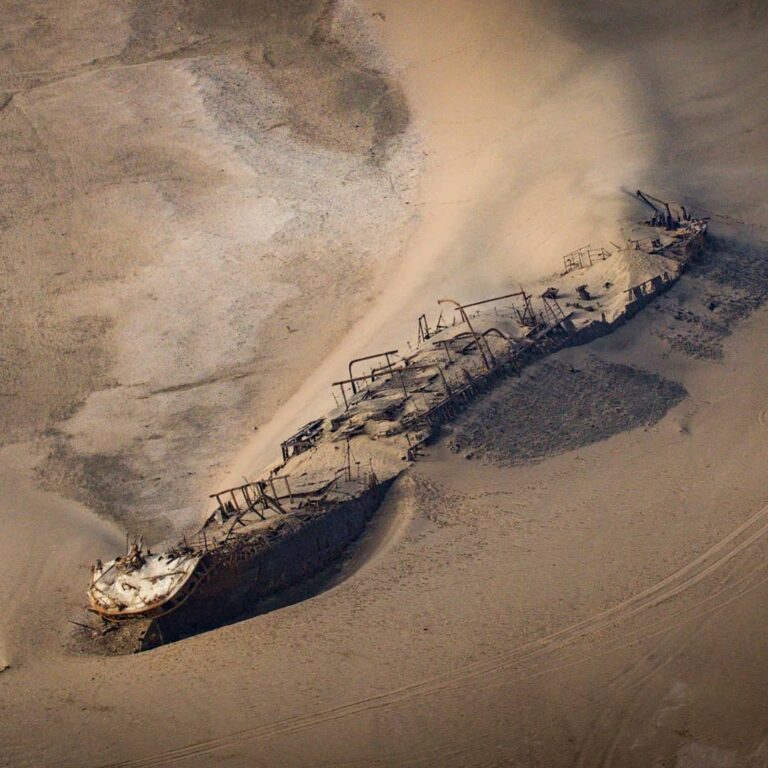
Skeleton Coast
6 ToursAbout The Skeleton Coast is the northern part of the Atlantic coast of Namibia and south of Angola from the Kunene River south to the Swakop River, although the name is sometimes used to describe the entire Namib Desert coast. The Bushmen of the Namibian interior called the region “The Land God Made in Anger”,
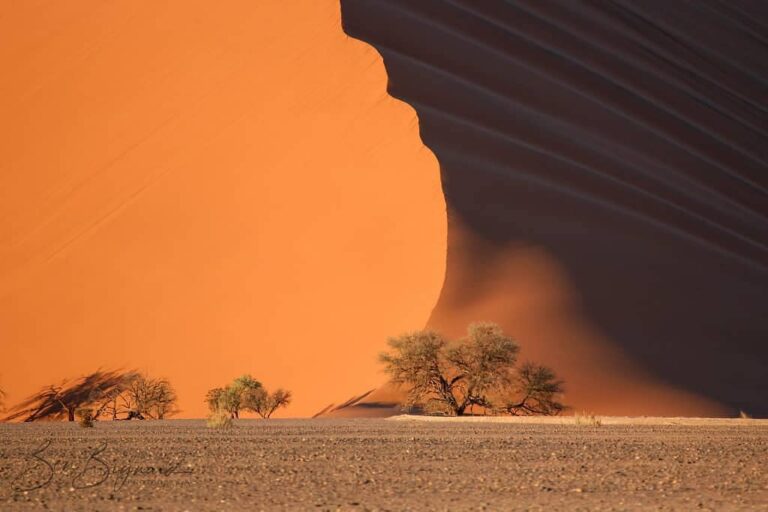
Sossusvlei
3 ToursGeography and Climate Sossusvlei (sometimes written Sossus Vlei) is a salt and clay pan surrounded by high red dunes, located in the southern part of the Namib Desert, in the Namib-Naukluft National Park of Namibia. The name “Sossusvlei” is often used in an extended meaning to refer to the surrounding area (including other neighbouring vleis
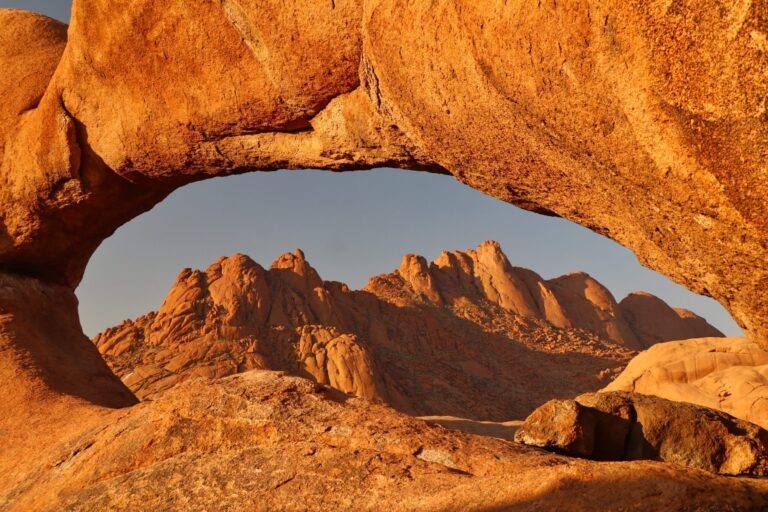
Spitzkoppe
3 ToursAbout The Spitzkoppe (from German for “pointed dome”; also referred to as Spitzkop, Groot Spitzkop, or the “Matterhorn of Namibia”) is a group of bald granite peaks or inselbergs located between Usakos and Swakopmund in the Namib desert of Namibia. The granite is more than 120 million years old and the highest outcrop rises about
